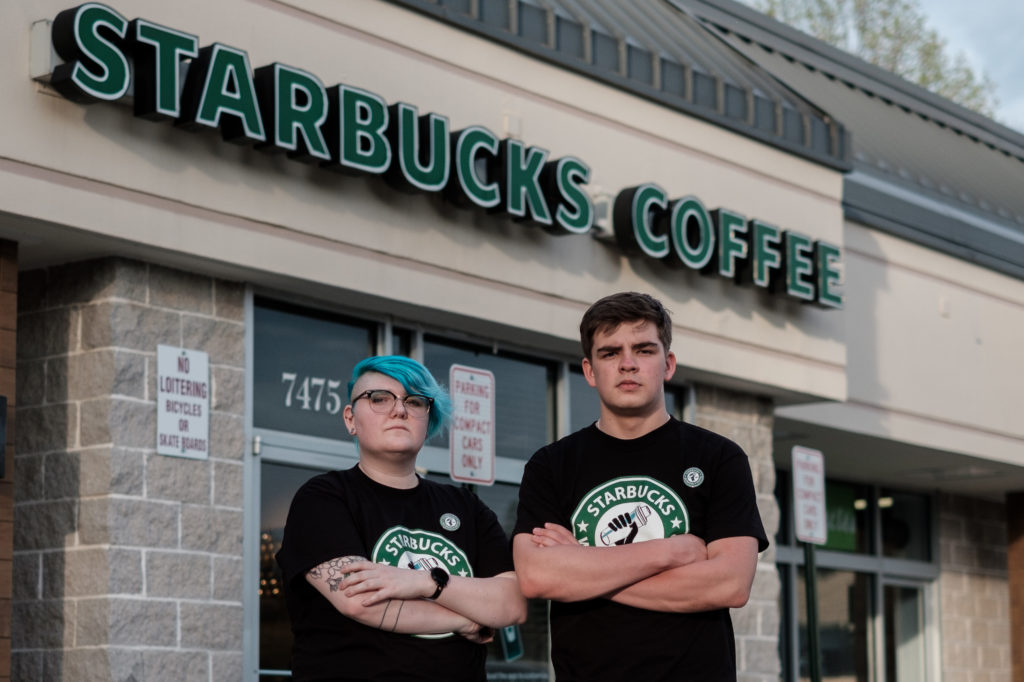Starbucks Workers Moving Toward Contract

As soon as Starbucks sidelined Howard Schultz’s disastrous return as CEO, it started moving to real contract negotiations with the workers in its stores who had decided to unionize. The rest of the company finally realized it made a lot more sense to sit down and be done with this than deal with the endless bad publicity it has caused. They are close to a deal.
That’s why recent events at Starbucks have been so significant. The company and the union — which represents more than 400 of Starbucks’s 10,000 U.S. stores — appear on track to reach a contract that will cover wages, benefits and disciplinary policies.
This would be a major milestone. Even after workers win a union election, companies often drag their feet when bargaining a contract. If years pass with little or no progress, union supporters may get demoralized and leave, causing the union to unravel.
By contrast, a contract could encourage workers to unionize across Starbucks and other food and beverage chains, which are part of an industry that is overwhelmingly nonunion.
….
Schultz, who spent decades at Starbucks before retiring in 2018, returned to the top job in 2022. He focused on fixing operational issues — like outdated equipment and store layouts, which he appeared to believe had fueled the union campaign — and promised to find a successor quickly. That turned out to be Laxman Narasimhan, the C.E.O. of Reckitt, a consumer products company based in England.
Though little was known about Narasimhan’s feelings on unions at the time, Starbucks corporate officials who worked with him later told me that he took a pragmatic view — believing it could be less costly to engage the union than to fight it. His stance differed from that of Schultz, who viewed the union as a personal affront. It appeared to threaten his self-image as a generous boss.
Socially minded investors pressed Starbucks to commission a report on its labor practices. It found that the company had fallen short of its commitments on labor rights. A coalition of unions spent heavily to back three labor-friendly candidates for seats on Starbucks’s board. And the company became a target of protests and boycotts tied to the war in Gaza, which escalated after Starbucks sued the union over social media posts supportive of Palestinians.
It’s hard to know how much these developments weighed on the company, but Starbucks appeared to take them seriously. It announced a new board committee to oversee employee relations shortly before it released the labor report. The company began talks with the union on how to bargain a contract a few weeks before the scheduled vote on the labor-friendly board candidates. And Narasimhan suggested on an earnings call that the protests and boycotts were having “a negative impact” on business even though they were “driven by misperceptions.”
Obviously, we need to see what actually comes of all this. I need details on just what this contract is going to do. Still, it’s a huge step forward when done.


